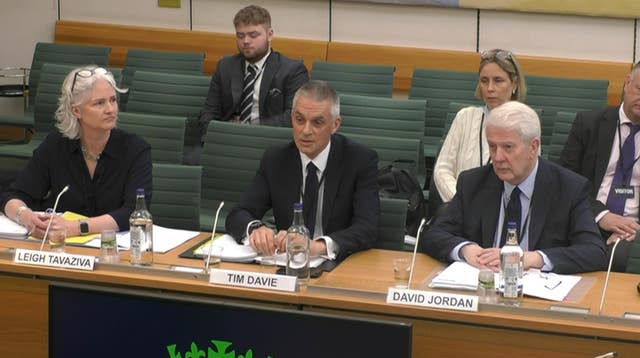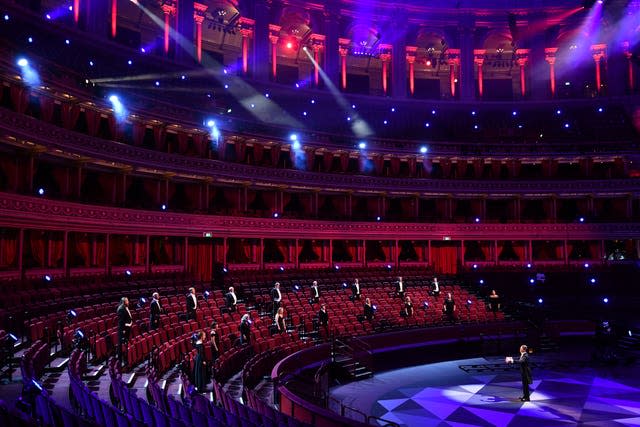BBC boss says staff reductions are ‘painful’

The BBC’s director-general has said that reductions of staff members at the corporation have been “painful”.
Tim Davie was asked by MPs about cuts to the broadcaster amid changes to the licence fee during a hearing of the Culture, Media and Sport Committee, which examined the work of the BBC.
The broadcaster said in January that it had agreed a sale of BBC Elstree Centre, which includes the set of EastEnders, is axing the soap Doctors in December 2024 and last year announced plans to reduce the number of Newsnight staff.

Mr Davie said he does not want to “spend money on property when I can spend it on content” and cited the creative “buzz” of London’s Broadcasting House as a positive development.
He also said that soaps “are not getting the audience they once were” following Doctors being cancelled due to rising inflation.
Mr Davie also said: “What I will say – and I’ll get back to funding – if you take 30% out and you take the money out over the last few years, you cannot grow the organisation.
“In fact, we’ve had to reduce painfully, the amount of people in public service BBC.”
The licence fee was frozen for two years, and last year the Government announced that it would use a lower rate of inflation to increase the household charge in April.
However, Mr Davie added that he does not believe the BBC is shrinking and the creative output from the organisation remains high and there are strong career paths.
Mr Davie also said the corporation had “enormous financial challenges” with the BBC Singers but maintained that the in-house chamber choir’s “future is secure”.
“I would never sell the family silver but it just allows you to do a little more commercial exploitation (with a new partnership),” he added.
Mr Davie said that there will be “no compulsory redundancies in the orchestras”– which include the BBC’s symphony, concert and philharmonic groups – and funding for them was secure.
“I think there’s a valid question about how many people you have on staff versus how many people you bring as performer musicians,” he also said.

In February, the corporation announced a new strategy to safeguard the BBC Singers and said it is looking for new opportunities for the BBC’s orchestras.
When asked about claims that the BBC is entering other radio markets, disadvantaging commercial players, Mr Davie said the broadcaster is trying to “maintain relevance” so “we can justify universality”.
He added that former BBC Radio 2 presenter Ken Bruce is an “outstanding broadcaster and Greatest Hits are lucky to have him” when MPs questioned a downturn in terms of listeners since the presenter left his show and was replaced by Vernon Kay.
Bruce’s new station Greatest Hits Radio has seen a large jump in its average audience over the last 12 months, up 70% from 4.0 million to 6.8 million according to Rajar.
In February, the audience research body reported that fewer listeners at Radio 2 has levelled off.
The station had an average weekly audience of 13.3 million people in October to December 2023, down 7% from 14.3 million a year earlier but a fall of just 1% on the previous three months.


